FEATURES • DESTINATIONS
Potato Head: An approach to sustainability that greatly enhances the consumer experience.
How does Bambu Indah Combine Luxury & Circularity?
Desa Potato Head is a creative village by the ocean in Seminyak, Bali, combining music, art, design, food, and wellness. Located on Petitenget Beach, it features Potato Head Beach Club and a hotel with 226 rooms. More than just a destination, Desa Potato Head aims to inspire creativity, balance, and progress. With the mantra "Good Times, Do Good," sustainability is at the core of Potato Head’s DNA. Their mission is to promote a zero-waste lifestyle without compromise, through products, services, and experiences.
June 2024 • Words by The Punch • Photography by Bambu Indah
"Sustainable can be beautiful. Sustainable can be exceptional."
Potato Head
SUSTAINABILITY MANAGEMENT
Potato Head has been fully committed to the Zero Waste Philosophy for many years with a full program for best product sourcing, waste separation, waste handling and recycling. Right now their waste to landfills has been reduced to 1.6% and the goal is 0% for the end of this year.
Desa Potato Head has been Carbon Neutral since 2017. Having worked with a UN carbon offset programme until 2022, they now work directly with Indonesia-based projects to offset their emissions.
SUSTAINABLE BUILDING & DESIGN
Designed in collaboration with Dutch architects OMA, Potato Head Studios is a seamless blend of traditional Balinese architecture and contemporary techniques. This innovative space is constructed largely from recycled materials, including discarded bricks from the Potato Head Suites used in the cement, recycled plastic bottles woven into the ceilings, and construction waste reused for the floors of the Circle Store and Amphitheatre.
Every room in Potato Head Studios is furnished with pieces made from recycled plastic and eco-friendly materials, conceptualized by renowned British designers Max Lamb and Faye Toogood. These designs are brought to life by skilled Balinese artisans who employ indigenous materials and techniques, alongside Potato Head’s own Waste Lab—an R&D team focused on developing circular solutions. Guests checking into the Studios receive a zero-waste kit, aimed at reducing single-use plastics and sparking conversations about the role of design and waste in driving change.
The Studios also feature several sustainably focused systems, including a Sea Water Reverse Osmosis (SWRO) plant for fresh drinking water and a Sewage Treatment Plant (STP) that allows for greywater reuse. In addition, a natural ventilation system harnesses wind power, while green roofs help reduce the building’s temperature by retaining water.
The iconic Potato Head Beach Club, renowned globally for its vibrant atmosphere, features a façade crafted from 6,600 upcycled antique shutters sourced from across Java. Meanwhile, at the heart of Desa Potato Head's Womb entrance is Headstream, a dynamic radio station that broadcasts shows featuring local artists and international guest DJs. The studio's design incorporates sustainability at every turn: window frames, tabletops, stools and cabinets are made from pressed sheets of recycled HDPE plastic collected from household waste across Bali, while the studio floor is made from recycled rubber sourced from industrial waste.
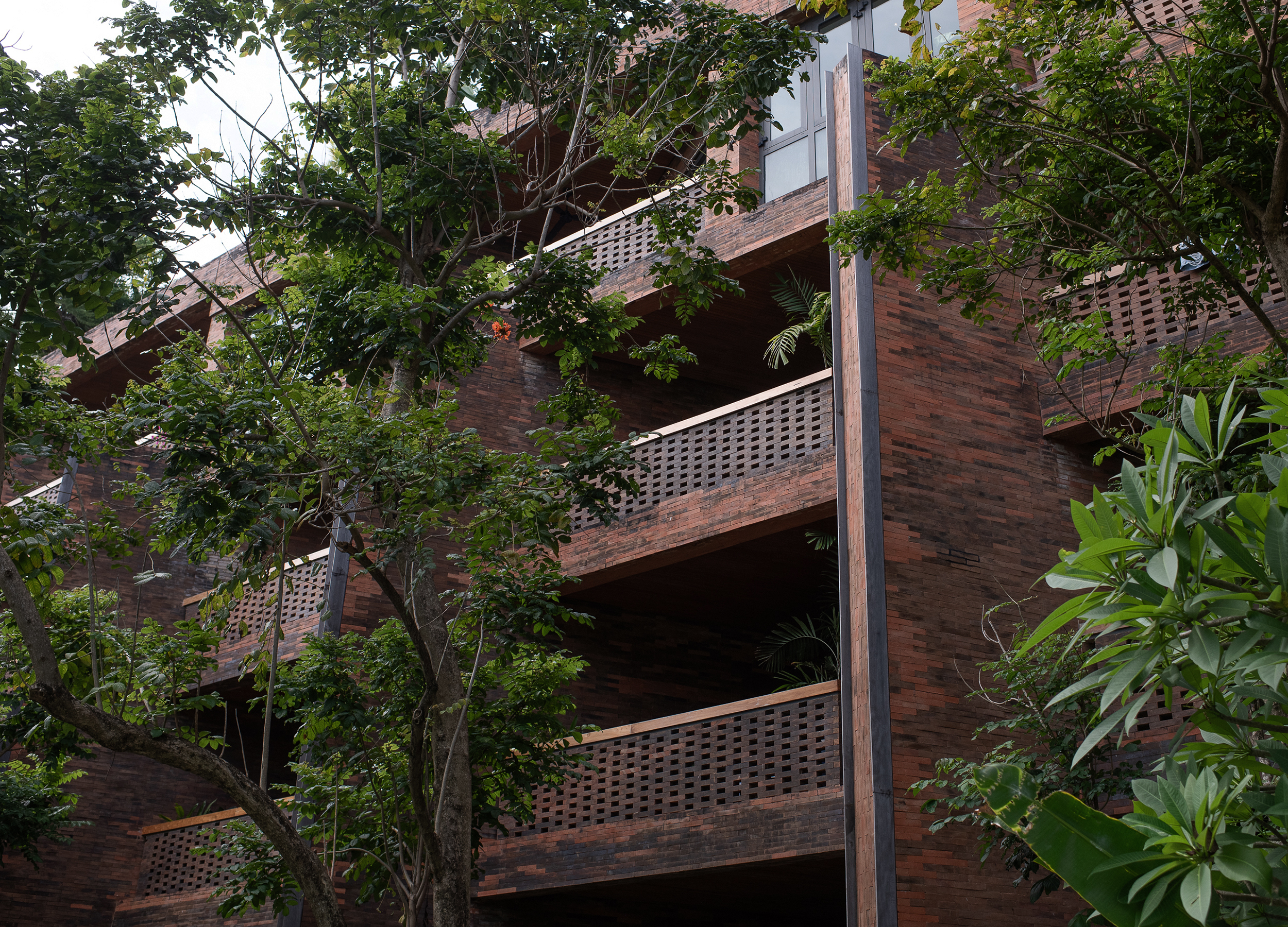
CONSCIOUS ART
Desa Potato Head is promoting a zero-waste lifestyle by collaborating with renowned global and local artists to create compelling art installations that convey the message of sustainability. These collaborations not only highlight the beauty of reused materials but also inspire visitors to reconsider their own consumption habits.
• Pointman – River Warrior: A collaboration with NYC street culture icon, FUTURA2000. To construct the piece, 888 kg of plastic was collected from around the island before being reimagined into a striking sculpture showcasing the possibilities of beautiful sustainability.
• 5,000 Lost Soles: Envisioned by German artist Liina Klauss, the installation is made of 5,000 flip-flops that had been washed ashore on Bali’s West Coast beaches. The flip-flops were not coloured or changed in any way; they were merely sorted by colour and rearranged into a new visual reality.
• The Womb: Designed by Indonesian artist Nano Uhero, The Womb is a 75 metre tunnel that symbolises the collective journey towards the betterment of the earth.
• The Three Naga: A collaboration between Balinese traditional weaver, artist Pak Gus Ari, and contemporary French-Javanese artist Ines Katamso. The installation is based on Balinese Hindu mythology that speaks of the planet’s need for regeneration.
• Woven Clouds: Situated on the fourth floor of Potato Head Studios, Woven Clouds was created using reclaimed HDPE power fibres by Indonesian artist, Joko Avianto.
SWEET POTATO PROJECT
Born out of the COVID-19 lockdown, Desa Potato Head has turned adversity into opportunity by transforming two plots of land in West Bali into fully functioning farms. The initiative, known as the Sweet Potato Project, aims to reconnect the Balinese community with agriculture and provide access to locally grown food. These farms use syntropic farming, a method that mimics natural cycles and combines crops that support each other, promoting the regeneration of developed or degraded land.
Recognised for its sustainability and efficiency, syntropic farming has enabled Desa Potato Head to produce an abundance of fresh, local produce. Around 90% of the harvest is used to prepare meals for some of Bali's most vulnerable residents, including orphanages and local waste collectors. The remaining produce is used in Desa Potato Head's own operations, ensuring that nothing goes to waste.
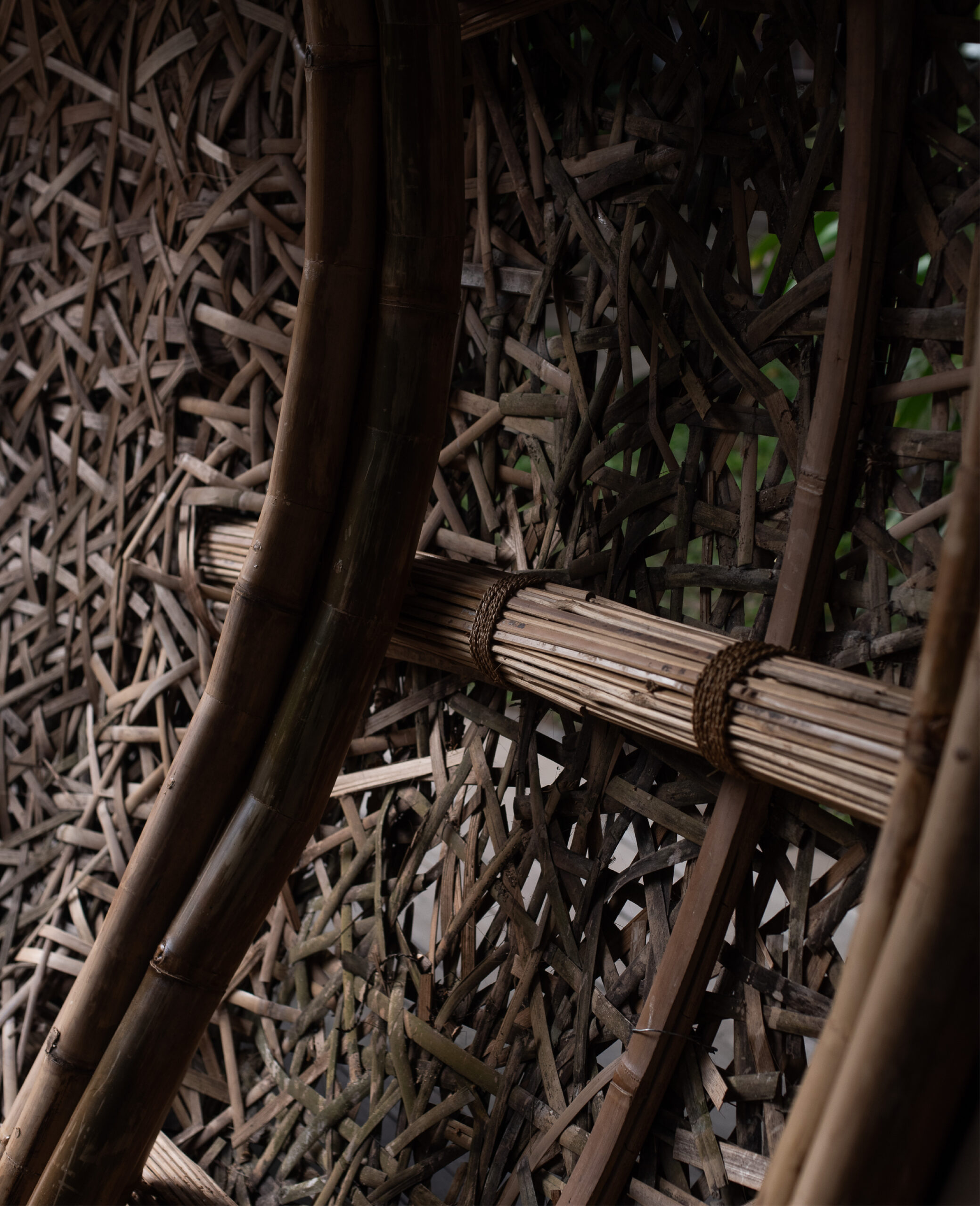
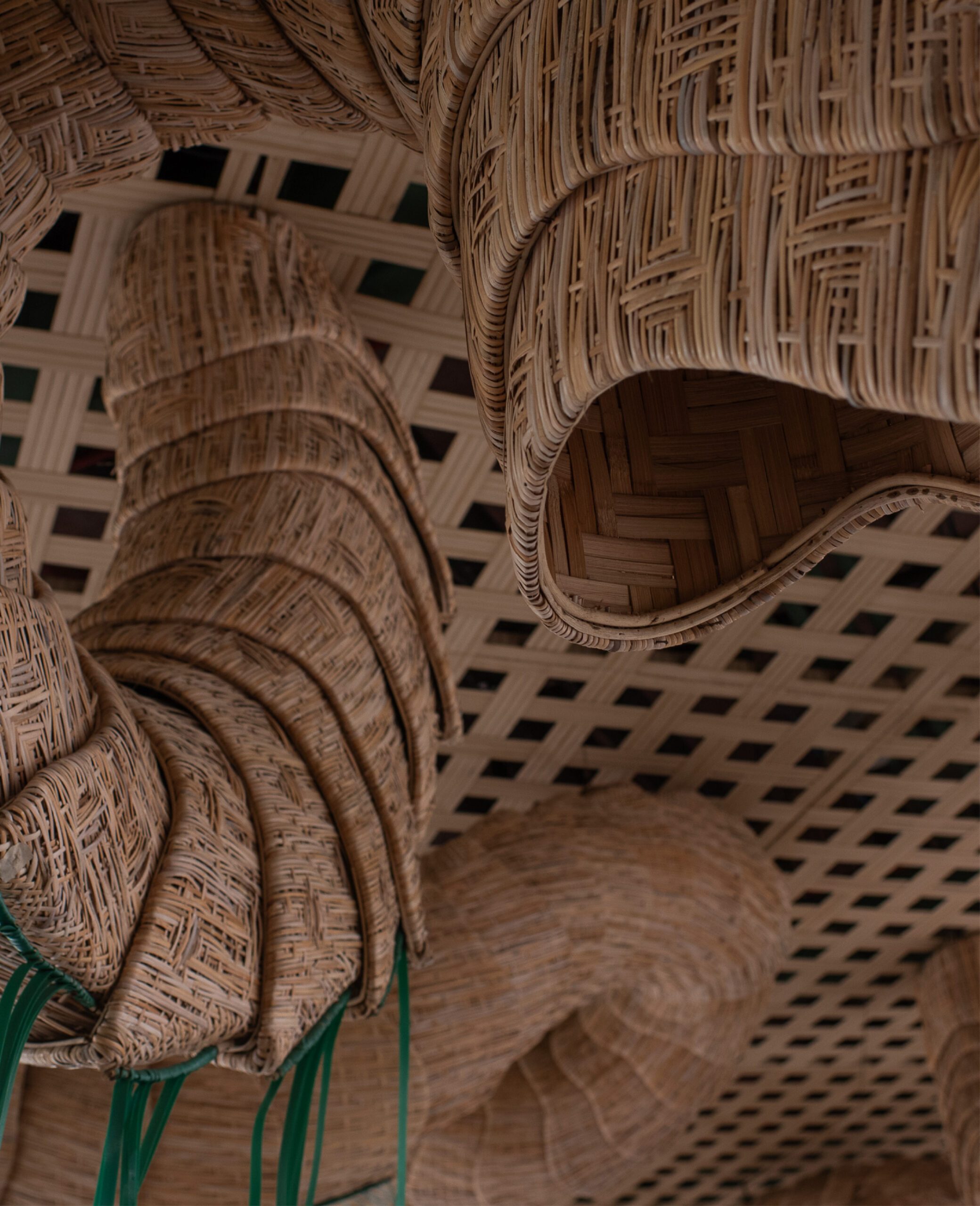
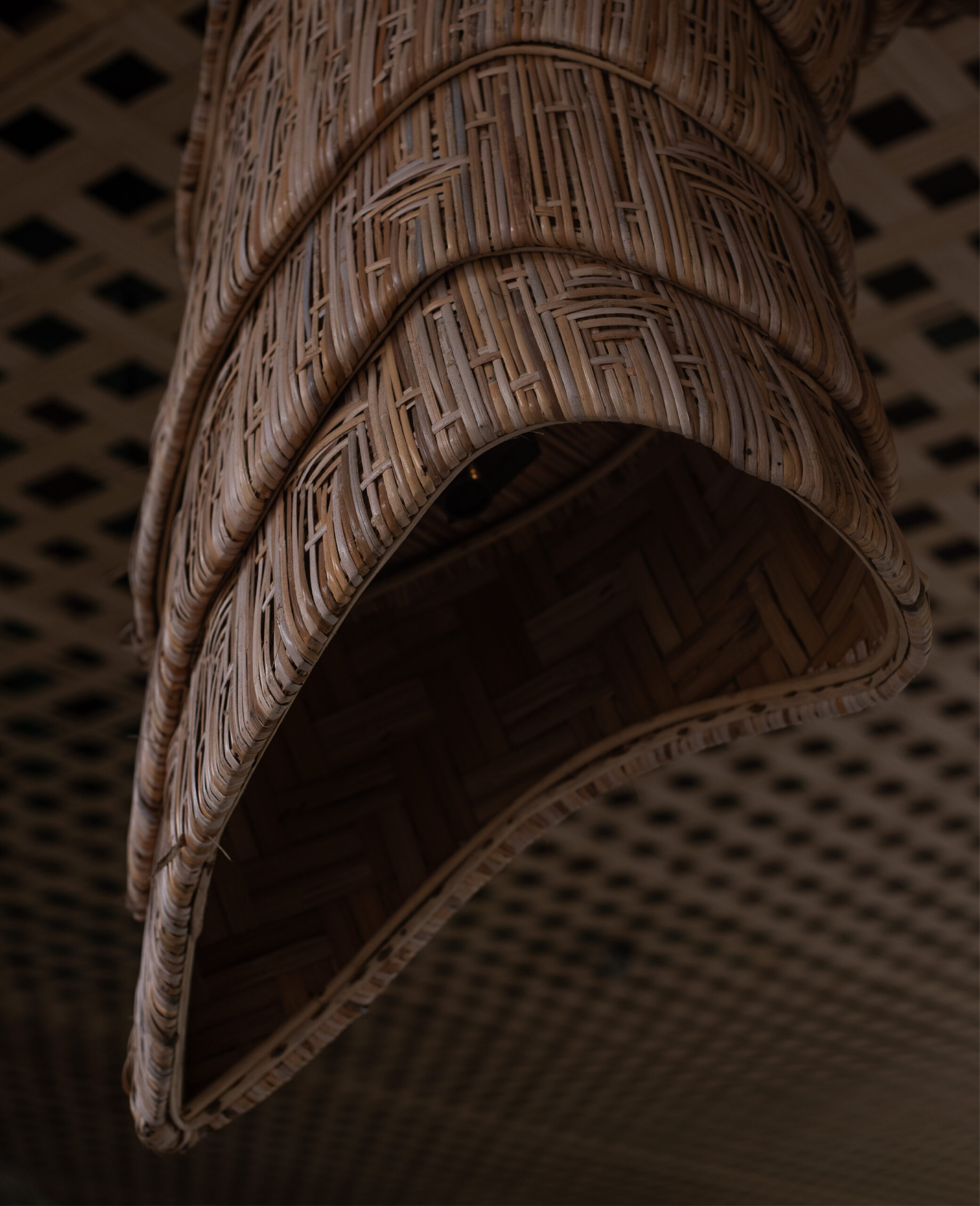
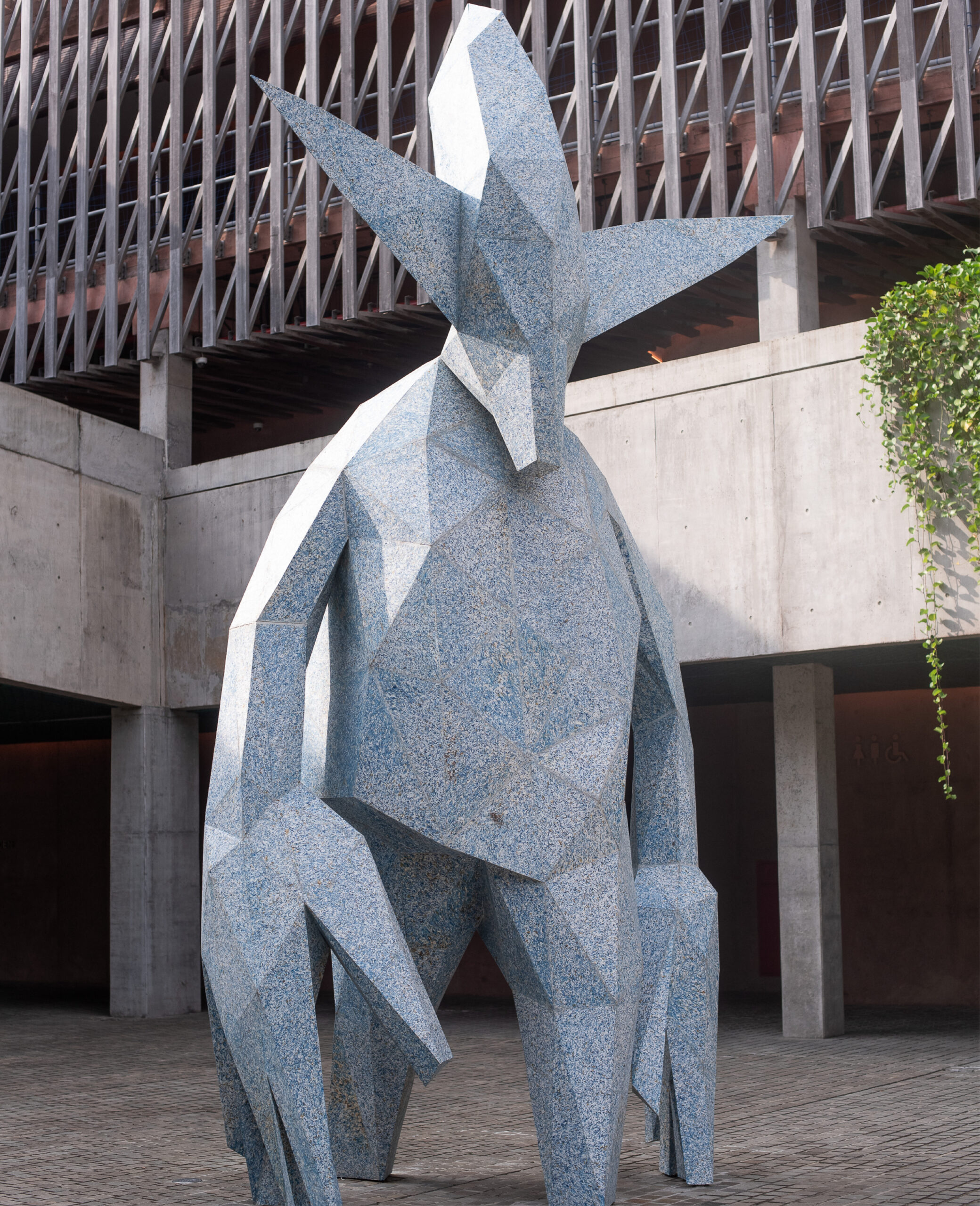
SWEET POTATO KIDS
The Sweet Potato Kids' Club is an engaging and educational space designed to inspire the next generation to protect the planet. The club offers exciting workshops where children can build bamboo kites, create recycled toys and make paints from scratch using sustainable pigments. These activities not only provide fun and creativity, but also teach the importance of sustainability from an early age.
WASTE LAB
The Waste Lab is Desa Potato Head's in-house research and design studio dedicated to finding innovative solutions to waste. Located on site, the studio focuses on the regeneration of waste into new materials and products. As part of Potato Head's zero-waste mission, surplus materials from daily operations are reused in the lab. To spread the message of regeneration, daily tours and workshops are offered to locals, visitors and guests, showcasing the lab's innovative work and encouraging wider community participation in sustainable practices.
RESIDUE REDUCTION TO 3%
Desa Potato Head has implemented a robust waste management strategy that aims to reduce residual waste to just 3%. An in-house team carefully sorts and separates waste and provides reusable plastic tubs to vendors to eliminate single-use plastics. By working closely with waste collectors and inspiring chefs and restaurants to adopt these practices, Desa Potato Head ensures thorough waste separation and promotes sustainable practices throughout the community.
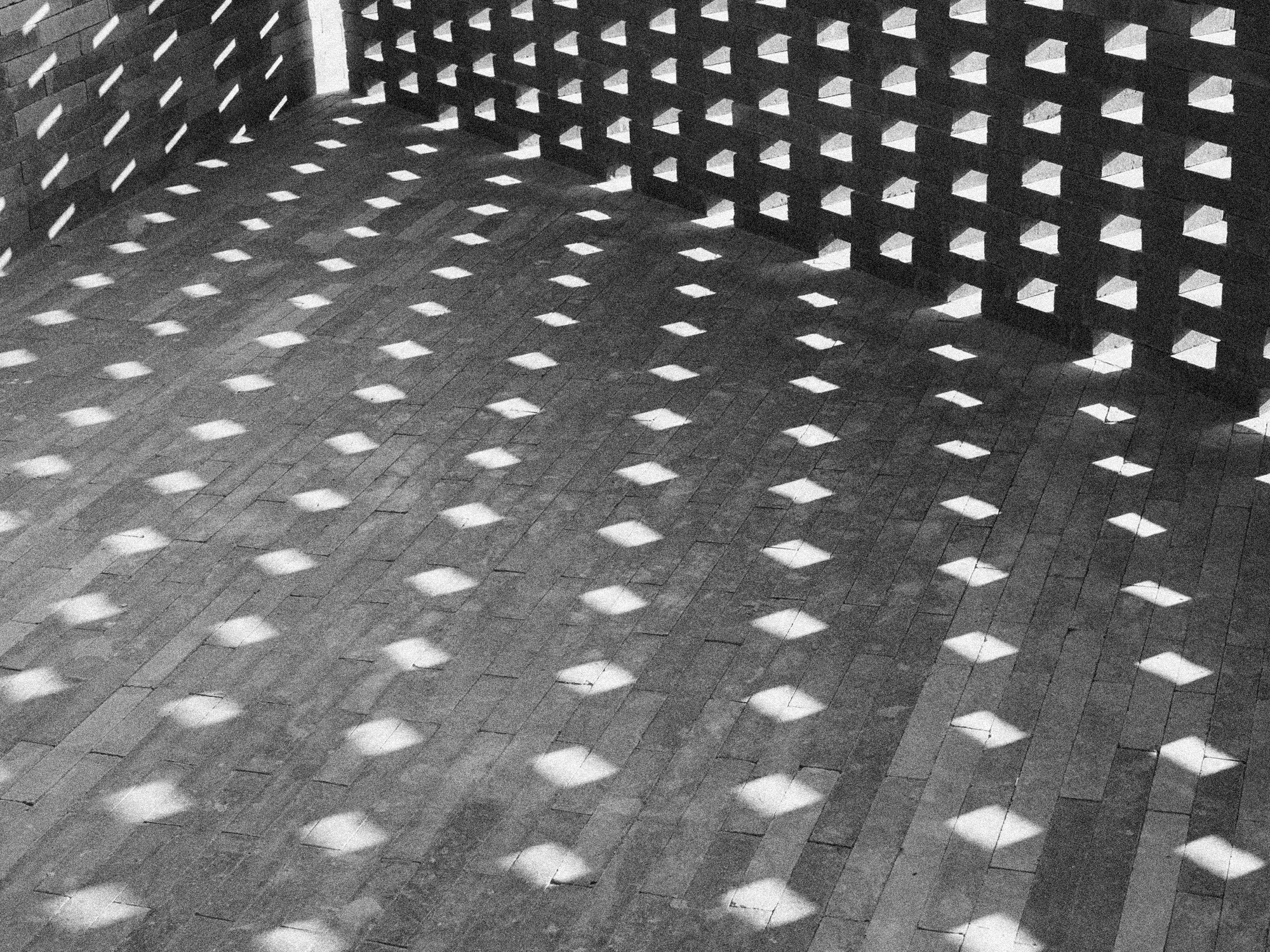
LOCAL SUPPORT
Desa Potato Head places the Balinese community at the heart of its operations, focusing on supporting and giving back to locals through a variety of impactful initiatives.
• Supporting social ventures to grow and develop innovations that help manage waste responsibly
• Supporting and promoting local artisans. For example, almost every part of Potato Head Suites was hand-crafted by the best local artisans, from the bricks to the furniture, amenities and decorations
• Supporting local farmers and producers by using locally sourced food wherever possible
WASTED SUWUNG
Potato Head's upcoming project, Wasted Suwung, aims to reduce Bali's waste burden by creating a collective waste centre in Batubelig Banjar. Set to open in 2024, the initiative will help partner businesses reduce their contribution to landfill, with plans to expand to other districts across Bali. The ultimate goal is to bring the island as close as possible to zero waste to landfill, significantly improving waste management and environmental health.
B-CORP
Desa Potato Head’s efforts to create "Good Times while Doing Good" have been officially recognized with B Corp certification. Gaining the certification was a long and painstaking process, with every aspect of the brand’s operations carefully examined to make sure they can be included among companies that meet “the highest standards of verified social and environmental performance, public transparency, and legal accountability to balance profit and purpose.” Potato Head is proud to have reached this milestone, and they understand the responsibility that comes with it – a commitment to continue raising the bar.

